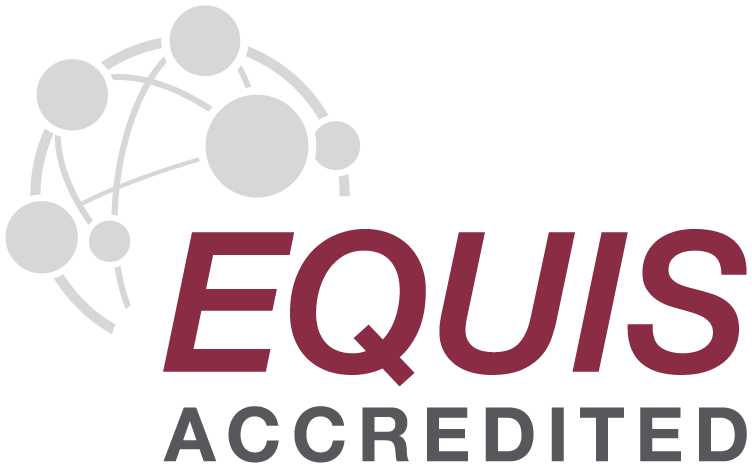
Master Program
Master MIBS focuses on core topics in the area of International Management, Innovation, Entrepreneurship and Digital Marketing. The study plan is structured as follows:
International business
The module is focused on the analysis of the MNEs global network. The purpose of the course is to provide a deep analysis of the organisational design of MNEs and of those SMEs which have started a process of internationalisation . The topics covered in the course include the following items: a focus on the MNE "core" activities, the consolidation of the MNE business value chains, and the entry of SMEs, localized in advanced countries, in emerging markets with high rate of growth.
Some emblematic cases will be discussed like: a) those of some EU and US companies, distinguishing the processes of internationalization market-driven from the processes of internationalization labour cost-driven, and b) the entry of some American and European SMEs in emerging countries.
The last issue presented is related to the advantages of in-sourcing strategies in US and in Europe
Strategy and Business Plan
Strategy is a complex and integrative discipline. It is important to acquire insights into a number of promising advanced topics: a) the strategic thinking, the formulation of strategies, the change and adaptation of strategies; b)the strategies at business and corporate level which draw on diversification and internationalization dimensions; c) the business modelling and networking; and c) the organizational and functional strategies as related to operation management. The course aims also to give a concrete and practical contribution to the preparation of a Business Plan among those who are looking in the firm to be sponsored for their innovative ideas or who turn to venture capital as a source for financing their business.
International payments and documentary credits
In an increasingly volatile and competitive global market, negotiating and managing International Payments is vital for efficiency, liquidity and profitability. The module focuses on the import-export finance and managing risks of international trade. In particular, it provides the knowledge and competences needed for understanding international protocols and conventions as well as the utility and functions of documentary credits.
International accounting
The purpose of this course is to introduce students to the most important concepts and principles of accounting and finance. It is intended to provide students with the knowledge and the basic skills that allow them to understand and analyze annual reports. Moreover, the course introduces students to non- financial reporting by focusing on some social reporting methods such as the Balanced Scorecard, the Triple Bottom Line and the GRI. Upon completion of this course, students should: - have a basic understanding of the fundamentals of accounting; - be able to read and understand annual reports;- be familiar with the fundamentals of social reporting.
Sustainability, Circular Economy and Global Supply Chain
The fragmentation of the value chain is nowadays a major theme in economics and management.
Supply chain executives in organizations across industries have enjoyed an improvement of overall performance from globalization efforts in recent years. This development requires firms to rethink dependencies with a global perspective on supply chains in order to better coordinate and integrate global logistics, purchasing, operations, and market channel strategies. Moreover, the increasing attention for sustainability encourages companies to draw on circular approach and innovative business models to revitalise supply chain design and foster the transition from linear supply chains over closed loops to circular economy.
Innovation Management and Patent Intelligence
The course aims to develop some basic concepts useful to transform the modern business firm into a creative organisation: sources and models of innovation; typologies of innovations (radical,incremental ,architectural, and modular); R&D,patents, and public policies; Absorbing capability (the second face of R&D); financing innovation through VC, business angels, and seed capitalists; the timing of innovation (first mover vs. second best); from the closed to the open innovation model; managing the new product development process and teams.
International Marketing
This module aims to advance students’ understanding of conceptual and practical aspects of international marketing and its management processes. Students will develop the confidence to design strategies and plans for targeting international markets. The main topics refer to: analysing the international business environment, selecting and targeting international markets, modes of entering and serving international markets, products and services for international markets, international distribution, promotion and pricing, marketing strategies for emerging markets.
Web Communication and Digital Media Marketing
The module aims to provide the skills for the design and management of marketing communication activities based on new digital media, with particular attention to the issue of coherence and integration between tools on- and off-line activities such situations B2B and B2C. Topics include: How to advertise online how to develop and manage the online brand community, how to create original content, how to choose the platforms, applications and services to support the activities of digital communication; how to manage the information required for the planning, organization and control of advertising and digital marketing; how to implement multi- or omni- channel strategies.
Web and Commerce Design
The module aims to treat the architectural and technological aspects of the construction of websites (web design). The module provides the knowledge necessary for the design and development of websites with the use of basic and advanced technologies. The module also deals with two related issues. The first concerns the search engine optimization (SEO) for a better poisoning of the web sites and contents. The second one evaluates the opportunities for firms, the performance, and the critical aspects related to the implementation of ecommerce platform and strategy.
Web and Data Analytics
This module aims to provide the tools to analyze the performance of online positioning through the use of tools such as Google Analytics. Web analytics is the collection, measurement, and analysis of data generated automatically from the websites for the purpose of optimizing the use of the web. It can be used as a tool to support the Strategy of introducing new products or to implement effective communication campaigns. The module also stress the importance of web reputation and sentiment analysis as well as the increasing role of data analytics based on artificial intelligence and machine learning.
Single Course Units
The Master MIBS of the University of Padua offers the opportunity to attend individual courses. At the end of the lessons you will get the certification of the activity performed.
It is possible to be enrolled for few individual courses (maximum 20 credits).
For more details and cost of participation (approx. 200 to 400 euros) in individual courses, please contact us
REGISTRATION INFO AND APPLICATION
Fill in the expression of interest by clicking here, to be informed about the master's events, the start date of new editions, the opening of enrolment and application instructions.
For the official pre-enrolment you can click on the following link, that will lead you to the PICA page where you can start the application.
Department of Economics and Management 'Marco Fanno'
Torre Portello C3, Via Bassi 1, 35131 Padova
Master Office - 4th floor
Tel: +39 049 8276347
E-mail: mibs.economia@unipd.it







